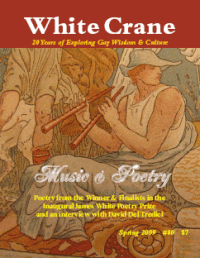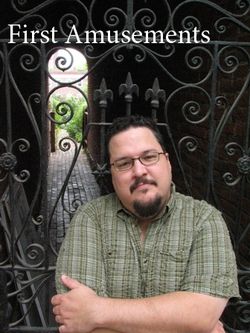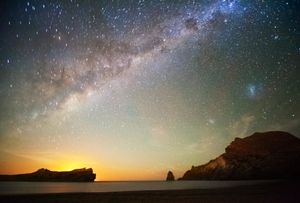A fascinating lecture from the former Secretary of Labor…before The Fall From Grace. This is, admittedly, long. But well worth the time.
Jesse’s Journal
Do we need "role models?
Is Perez Hilton a Gay role model? Not according to many readers of the Advocate, who protested vigorously when the magazine put the celebrity blogger on the cover of its August issue. There was such a strong reaction that Advocate editor in chief Jon Barrett had to issue a response. Even so, when Advocate.com asked its readers if “Perez Hilton [is] an appropriate spokesman for marriage equality and other gay rights issues,” 3.1% of respondents said yes while a whopping 95.6% said no. “Perez Hilton is a major embarrassment to our entire culture. No one likes a gossipy, hateful, self-serving bitter queen. He needs to be silenced for the good of the WORLD, not just the gay community,” read a typical comment. There is even a Facebook group, “1,000,000 AGAINST Perez Hilton being the GLBTQ SPOKESPERSON,” devoted to Hilton haters within the GLBT community. Unfortunately, as an openly-gay man who is often in the spotlight, Hilton has come to represent GLBT people, whether we like it or not.
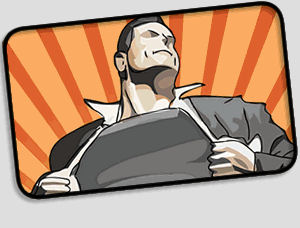 The online Wiktionary (en.wiktionary.org) defines “role model” as “a person who serves as an example, whose behavior is emulated by others. Wiktionary’s sister Wikipedia (en.wikipedia.org) elaborates, adding that the term “first appeared in Robert K. Merton’s socialization research of medical students. Merton hypothesized that individuals compare themselves with reference groups of people who occupy the social role to which the individual aspires.“ An even better online description was found in techup.org, which tells us that “true role models are those who possess the qualities that we would like to have and those who have affected us in a way that makes us want to be better people. To advocate for ourselves and our goals and take leadership on the issues that we believe in. We often don’t recognize our true role models until we have noticed our own personal growth and progress.”
The online Wiktionary (en.wiktionary.org) defines “role model” as “a person who serves as an example, whose behavior is emulated by others. Wiktionary’s sister Wikipedia (en.wikipedia.org) elaborates, adding that the term “first appeared in Robert K. Merton’s socialization research of medical students. Merton hypothesized that individuals compare themselves with reference groups of people who occupy the social role to which the individual aspires.“ An even better online description was found in techup.org, which tells us that “true role models are those who possess the qualities that we would like to have and those who have affected us in a way that makes us want to be better people. To advocate for ourselves and our goals and take leadership on the issues that we believe in. We often don’t recognize our true role models until we have noticed our own personal growth and progress.”
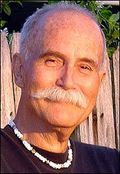 There was a time when Gay, Lesbian, bisexual or transgender people had precious few role models; men or women who showed us what it was like to be queer. When
There was a time when Gay, Lesbian, bisexual or transgender people had precious few role models; men or women who showed us what it was like to be queer. When I was a kid in the 1960s, the only Gays I knew of were Liberace and a swishy “artist” who live with his mother in the apartment across the hall. It was only later that I learned about the likes of Franklin Kameny, Barbara Gittings, Del Martin and Phyllis Lyon, and Jack Nichols (left) and Lige Clarke (at right). Kids growing up today have a larger group of models to look up to, ranging from out athletes like Martina Navratilova, John Amaechi and Esera Tuaolo to entertainers like Ellen De Generes, Neil Patrick Harris and Wilson Cruz. Even more inspiring are young GLBT activists who began their work at an early age, like South Florida’s Waymon Hudson and Tobias Packer. “Elder statesmen” like “Pompano Bill,” Larry Friedlander, Bill Mullins and Dick Rogers (just to name a few South Florida models) teach us that Gay men can lead active lives well into their golden years.
I was a kid in the 1960s, the only Gays I knew of were Liberace and a swishy “artist” who live with his mother in the apartment across the hall. It was only later that I learned about the likes of Franklin Kameny, Barbara Gittings, Del Martin and Phyllis Lyon, and Jack Nichols (left) and Lige Clarke (at right). Kids growing up today have a larger group of models to look up to, ranging from out athletes like Martina Navratilova, John Amaechi and Esera Tuaolo to entertainers like Ellen De Generes, Neil Patrick Harris and Wilson Cruz. Even more inspiring are young GLBT activists who began their work at an early age, like South Florida’s Waymon Hudson and Tobias Packer. “Elder statesmen” like “Pompano Bill,” Larry Friedlander, Bill Mullins and Dick Rogers (just to name a few South Florida models) teach us that Gay men can lead active lives well into their golden years.
Unfortunately, even role models are human, and too many of them fall off their pedestals. We have seen too many famous or beloved athletes and politicians, of all genders or sexual orientations, get caught having illicit sex, committing petty or major crimes, or using illegal substances. Dustin Lance Black, the Academy Award-winning screenwriter (Milk) and Advocate cover boy, got into a pickle when photos of the comely Mr. Black, naked and enjoying bareback sex, appeared in various web sites. Though Black has every right to enjoy bareback sex (as stupid as it is) doing it in front of a camera doesn’t help the reputation of someone who – like Ranger Doug of the country comedy group Riders in the Sky – is an idol of (Gay) American youth.
Black has since responded to the scandal the way people usually do, by suing the messengers: “The Oscar-winning screenwriter’s henchmen at Lavely & Singer – the bulldog law firm behind seemingly every celeb’s sex tape lawsuit threats – are going after Starzlife.com and its proprietors, which the lawsuit alleges distributed photos (and supposedly has video) of Black and one X [my deletion] having anal sex (without a condom, as everyone has noted!). Something about invasion of privacy and copyright infringement,” notes the web site queerty.com. Let’s see how this goes. Meanwhile, we should all heed queerty’s sage advice: “NEVER TAKE PHOTOS OF YOURSELF NAKED OR HAVING SEX, EVER, BECAUSE THEY WILL BE RELEASED.” (Caps were in the original, though I share the sentiment.)
Even worse is the case of Broward Sheriff’s Deputy Jonathan Bleiweiss. Back in March the South Florida Gay Blade wrote a glowing article about the openly Gay Deputy, noting that he “received the 2008 Employee of the Year award for the Oakland Park Division for his outstanding work, at a ceremony on the evening of Wednesday, March 4, 2009 at the Oakland Park City Hall. This is the first time an openly Gay deputy received this award from BSO [Broward Sheriff’s Office]. . . . Among Bleiweiss’ accomplishments are his capture of two robbers and recovering their AK-47 weapons, his arrest of a serial arsonist, and having made over 100 arrests in the last year that were directly related to quality of life issues in Oakland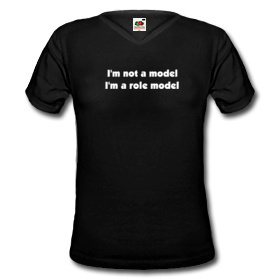 Park.” Five months later, according to the South Florida Sun-Sentinel, this “pioneering, openly Gay Broward sheriff’s deputy who fought discrimination within that agency earlier in his career” was accused of being “a manipulative sex offender who preyed on illegal immigrants too scared to contact authorities. . . . Bleiweiss, arrested [August 3], faces 14 charges, among them three counts of sexual battery by a person in authority, four counts of battery and one count of stalking. He’s accused of intimidating at least eight men in his Oakland Park patrol district into performing sex acts with him during traffic stops.” Ouch! Though Gay activist Michael Rajner said that “this is not an act that necessarily impacts the gay community,” I cringed when I read the headline: “Deputy accused of sexual abuse was fighter for Gay rights” Already the bigots have come out of the woodwork, flooding the Sun-Sentinel’s message board with hateful messages about all Gay men, based on the actions of one Gay man. Though Deputy Bleiweiss is of course innocent until proven guilty, his precipitous fall from grace robs our community of one more role model.
Park.” Five months later, according to the South Florida Sun-Sentinel, this “pioneering, openly Gay Broward sheriff’s deputy who fought discrimination within that agency earlier in his career” was accused of being “a manipulative sex offender who preyed on illegal immigrants too scared to contact authorities. . . . Bleiweiss, arrested [August 3], faces 14 charges, among them three counts of sexual battery by a person in authority, four counts of battery and one count of stalking. He’s accused of intimidating at least eight men in his Oakland Park patrol district into performing sex acts with him during traffic stops.” Ouch! Though Gay activist Michael Rajner said that “this is not an act that necessarily impacts the gay community,” I cringed when I read the headline: “Deputy accused of sexual abuse was fighter for Gay rights” Already the bigots have come out of the woodwork, flooding the Sun-Sentinel’s message board with hateful messages about all Gay men, based on the actions of one Gay man. Though Deputy Bleiweiss is of course innocent until proven guilty, his precipitous fall from grace robs our community of one more role model.
Role models are good to have around, but we cannot always depend on them. So we should be our own role model; and be the best Lesbian woman, Gay man, bisexual or transgender person that we can be.
Jesse Monteagudo is a South Florida-based freelance writer and gay activist. Write him at jessemonteagudo@aol.com.
Disturbing Video of the Mormon Kiss Couple Arrest
Apparently a security camera caught security guards confronting a gay couple after they kissed on the LDS plaza in Salt Lake City, Utah, on July 9, 2009. YouTube processed this file at double speed and shows a group of Mormon goons in suits arguing with Matt Aune and Derek Jones before handcuffing them. Charges against Aune and Jones have since been dropped.
WC80 Music & Poetry Issue
Music & Poetry
Hi Friends!
Below are excerpts from
our latest issue!
Please understand that we rely on the
support of subscribers to keep going.
So, subscribe today and keep the conversation going! Consider giving a gift subscription to your friends who could use some wisdom!
Columns
Opening Words "First Amusements" The Editors
Updrafts by Dan Vera
"Animal, Vegetable, Mineral" Praxis by Andrew Ramer
Call for Submissions
Subscriber Information
Contribution Information
Taking Issue
A WHITE CRANE CONVERSATION
"Gay Orpheus" - David Del Tredici
By Ray WarmanThe Creative Universe by Arthur Evans
"Come, Creator Spirit" A 9th Century Hymn Translated for the 21st
By Rabanus Maurus, Translation by Arthur Evans"The Peace of Gentle Waves" A Poem for Jaheem Herrera by Cleo Creech
"Big Joy" A Documentary Film Project about James Broughton
Bo Young Speaks with Stephen Silha
2009 White Crane / James White Poetry Prize
Winner – James Nawrocki
“House Fire”
“Golden Gate,”
“Fortune Cookie”
“From Cole Street”Finalist – Jeremy Halinen
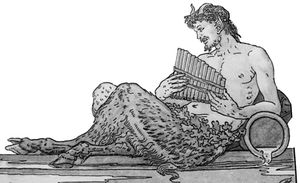
“Afternoons Above I-5”
“I-90 Westbound from Spokane,”
“Buggering You under an Apple Tree”
“Note”Finalist – James Najarian
“Travelogue”
“My Big Head”
Culture Reviews
Didjeradoo by Dreamtime
Reviewed by Bo Young
Signals By Ed Madden
Reviewed by Dan Vera
Our Caribbean: A Gathering of Lesbian and Gay Writing From The Antilles
Edited by Thomas Glave
Reviewed by Dan Vera
Subscribe today and keep the conversation going! Consider giving a gift subscription to your friends who could use some wisdom! If there's an article listed above that was not excerpted online, copies of this issue are available for purchase. Contact us at editors@gaywisdom.org
WC80 – Editor’s Note
It’s hard not to take a defensive crouch when writing an introductory essay to a special issue on poetry and music. Truth be told, the defensiveness has more to do with the poetry than the music. Music everyone loves and understands. Poetry? That is a more contentious idea. Or seems to be.
I feel compelled to make the case for poetry, to argue for the importance of poetry and the desire for others to read more poetry. Arguments of this kind usually include a mention of the endangered nature of poetry, how no one reads it anymore and how it’s tied to the decay in society. I somewhat agree with all these things, but those kinds of essays always take on the feel of a commercial for high-fiber cereal “You should eat it because its good for you damnit!”
The truth is I’ve always found these kinds of arguments a bit boring and beside the point. Poetry is in our lives and has been there since the beginning. Think of it. For most of us our first real exposure to poetry occurs in childhood with rhymes and little stories.
Jack be nimble, jack be quick…
Jack Sprat could eat no fat… (Jack was a busy boy.)
Eeny, meeny, miny, moe…
They’re the indelible songs we first learned
Mary had a little lamb…
Twinkle twinkle little star…
These poems are the first stories that stuck because they embedded themselves in the brain. But somewhere down the line — and it almost always happened (or happens) in a classroom — the pleasurable experience of enjoying this art form of wordplay is replaced with a mechanical exercise in pulling the little wonder apart, in dissecting the corpse of what was so alive in the ear. For most people I’ve spoken with, these approaches had the result of causing them to run for the exits.
For the last 7 years I’ve run a small reading series in my neighborhood. Most of our work in building an audience has been rehabilitating poetry in the ears and minds of the people who come forth; healing the bad memory of poetry as an aloof inaccessible thing or a laborious exercise for the listener. Our readings are a bit different as we choose a theme and then collect poems from the contemporary and legacy poets we know. So if you came to our reading on “dog poetry” (every June) you would hear 45 of the best poems on dogs written in the English language (some translated into English). So it’s more like an anthology. I mention this not as a plug for a local series but to share that we rarely have the opportunity to hear, much less read good poetry. With the exception of The New Yorker, it is rare to find a poem in a magazine today. Much rarer Gay poetry. I can’t tell you the last time that The Advocate published a poem in its pages.
This was not always this way. Not long ago it was unheard of to publish a magazine without having a poetry editor and publishing a few poems in magazines. [White Crane has long had a poetry editor. Bo Young, the publisher in these parts, began his connection to the magazine as it’s poetry editor. I served as poetry editor for RFD before coming to White Crane.] Theories abound as to the why and when this changed but that’s not really the point here. The point is that there is great poetry being written today but fewer places to read it and fewer places to enjoy the best.
We care about poetry here. For no other reason than poetry is Gay. Yes, I wrote it. Poetry is so Gay. It’s impossible to know the history of the art form and deny that it bears a huge resonance for Gay people and that Gay people have mastered it in powerful ways. Do I need to make the list? Okay then: Whitman, Dickinson, Lowell, Cavafy, Stein, Bynner, Lorca, Lorde, Bishop, Auden, Jordan, Ginsberg, Hughes. All Gay. The list is too long to write here and I haven’t even touched the contemporary poets.
So no defensiveness then. We publish poetry because Gay people write poetry. Damn good poetry too. Which brings us to the damn good poetry in this issue (see how these things flow?).
We’re delighted in this issue to publish the poetry of James Nawrocki, the first winner of the White Crane/James White Poetry Prize for Gay Men’s Poetry. Nawrocki hails from San Francisco, and we here at White Crane are proud of the fact that his work has previously appeared in these pages. The prize itself was judged this year by the powerfully good poet Mark Doty, who has honored us all by looking through the work of the finalists and selecting Nawrocki’s manuscript for publication. We are also proud to publish some poems by the two other finalists Jeremy Halinen of Seattle and James Najarian of Boston.
In striving to honor the muses of Poetry and Music, we have a fantastic interview with the Pulitzer-prize winning composer David Del Tredici and an essay by Arthur Evans on the creative universe.
So enjoy! And I hope you are amused.
Amused. That’s the word the poet Frank O’Hara used when he came across something that really moved him. Something that “touched his muse.” If he loved something, he found it “amusing.” If he was not impressed or moved, he found it “unamusing.” It’s perhaps one of my favorite phrases and I share it with you.
Be amused. Be very amused.
Dan Vera is the White Crane's managing editor. He is also the author of the recently released book of poetry, The Space Between Our Danger and Delight (Beothuk Books). He lives in Washington DC. For more on Dan visit www.danvera.com
For more White Crane, become a fan on Facebook and join us on Yahoogroups.
Subscribe today and keep the conversation going! Consider giving a gift subscription to
your friends who could use some wisdom! If there's an article listed
above that was not excerpted online, copies of this issue are available
for purchase. Contact us at editors@gaywisdom.org
WC80 – James White Poetry Prize – Finalist
James Najarian
Finalist for the 2009 White Crane / James White Poetry Prize
Travelogue by James Najarian
Our travel papers are seldom in order.
We lack a visa, or the proper stamps.
More often than not, we're stopped at the border,Our documents held to the light, just like this.
Our endorsements are in the wrong color ink,
Our signatures void, our persons suspicious.This isn't the first time we've been refused entry.
You are a country we will never visit.
We view your coast from a deck on the sea,Or get a hold of photographs, somewhere.
The kind of pictures that reveal nothing –
Cloudy landscapes taken from the air –They tell us nothing we're not meant to know.
No one responds to calls at the consulate.
There's no national airline or tourist bureau.You are a nation whose borders are closed:
A tiny state in the hills, like Bhutan.
The ridges and valleys stay unexposed.Or you are a gap on the map of the world;
Your body, a continent, could be Antartica:
Cool, pale, and barely explored;It could be perilous – the Khyber Pass,
A place without settlers – the Serengeti,
Or a place found only on a prewar atlasWhere half the globe is either pink or blue
Ubangi-Shari, or Bechuanaland,
Or someplace even harder to get to:Cathay, Cibola, Lemuria, Mu.
James Najarian teaches nineteenth-century poetry at Boston College. He is the author of the critical work Victorian Keats: Masculinity, Sexuality, and Desire published in 2002 by Palgrave Macmillan. He lives in the Brighton section of Boston.
For more White Crane, become a fan on Facebook and join us on Yahoogroups.
Subscribe today and keep the conversation going! Consider giving a gift subscription to
your friends who could use some wisdom! If there's an article listed
above that was not excerpted online, copies of this issue are available
for purchase. Contact us at editors@gaywisdom.org
WC80 – James White Poetry Prize – Winner
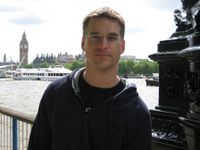 James Nawrocki
James Nawrocki
Winner of the 2009 White Crane / James White Poetry Prize
His winning manuscript House Fire will be published by White Crane Books.
House Fire by James Nawrocki
It seems too staged, too weirdly poetic this way,
the house where we first met going up in flames
but this is exactly what I come out from my yard to find
as the sirens die at their loudest just up the street
and I follow the uphill stream of spectators
and the trail of the smoke blowing down to usto find the fire has picked this one. The truth is
we never really came to much: a few torrid meetings
when you were renting a room there and I
trudged up the slope to your door. The truth is
we fell into each other too fast and lasted
just as long as our particular heat required, as if
desire had been stored up in us like so much fuel
and its reckoning had come. We’ve moved onand now this haunt meets its end as well, the orange flames
like the arms of a maniacal crowd tearing at the wood,
flinging their colors out the ruined windows as if
to answer the gaze of all these witnesses:
the curious, the bystanders, none innocent, none without
a bit of that gleaming-eyed thrill
that regards all destruction.
Golden Gate by James Nawrocki
Brian and I step off
the road into sloping dirt,
down steps molded from
arms and feet of roots,
the trees’ bodies bent down
and standing up, like prayer,
the light there and gone
and there again
as we run
beyond the halted trees
and land safely
at each leap down
from shade into the pitch
of sun and rock,
our feet passing,
pressed in the dust
with other feet as we come
toward the Pacific.
Maybe this is the only way
we will ever free ourselves,
not up from the world, but down
to front the double vault
of heaven and ocean,
the beach like the brief margin
between two states,
the vastness
that teaches the body to be small.
A native of Ohio, James Nawrocki has lived in San Francisco for over 13 years where he works in corporate communications. In addition to having appeared in White Crane, Nawrocki’s poems have appeared in Kyoto Journal, Chroma Journal, Gay & Lesbian Review Worldwide, Poetry, Poetry Daily, modern words, The James White Review, Mudfish and numerous other publications. His fiction and essays have appeared in Gay & Lesbian Review Worldwide and Geek Monthly.
For more White Crane, become a fan on Facebook and join us on Yahoogroups.
Subscribe today and keep the conversation going! Consider giving a gift subscription to
your friends who could use some wisdom! If there's an article listed
above that was not excerpted online, copies of this issue are available
for purchase. Contact us at editors@gaywisdom.org
WC80 – James White Poetry Prize – Finalist
Jeremy Halinen
Finalist for the 2009 White Crane / James White Poetry Prize
Afternoons Above I-5 by Jeremy Halinen
We used to drop acid
and sit on the overpass
to watch the dragon faces
the cars would make at us
as they raced
beneath our dangling legs.
Cars like it when you’re high enough
above them to notice
more than their surfaces.
It’s the story of their exhaust
they want you to care about,
not their paint jobs
or the treads
on their tires. They want you to lean down
and touch them. I know what you’re thinking.
I know what you’re thinking.
It’s dangerous,
what we used to do. But
the cars told us they’d catch us if we fell.
You say, So what if they did?
And you’re right.
There’s always a catch.
Jeremy Halinen is a coeditor and cofounder of Knockout Literary Magazine. Some of his recent poems appear in Arroyo Literary Review; Best Gay Poetry 2008; Dos Passos Review; OCHO, Pontoon: An Anthology of Washington State Poets; and Rio Grande Review. He holds a MFA in creative writing from Eastern Washington University, where he served as poetry editor of Willow Springs. He resides in Seattle.
WC90 – Arthur Evans – Come, Creator Spirit
Come, Creator Spirit
By Rabanus Maurus,
Translation from the Latin by Arthur Evans
Come, Creator Spirit,
Visit the minds of your people.
Fill with grace from above
The hearts that you have made.
You, who are called the Inspirer,
Gift of God in highest Heaven,
Living Fountain, Fire, Love,
And Spiritual Anointing,
You, benefiting us in seven ways,
Finger of the Father’s hand,
You, the Father’s faithful promise,
Enriching tongues with speech,
Light a lamp amid our senses,
And into our hearts, pour love.
Fortify with lasting virtue
The weakness of our bodies.
Push back the foe, far away.
Let peace be near at hand.
Be thus our leader, out in front,
To save us everywhere from harm.
May we, through you, discern the Father
And learn as well the Son,
And also trust in you,
Their Spirit, throughout all time.
Glory be to God the Father,
And to the Son, arisen from the dead,
And to the Inspirer,
For age on age to come.
Amen.
= = =
Veni, Creator Spiritus,
mentes tuorum visita.
Imple superna gratia
quae creatis pectora.
Qui diceris Paraclitus,
altissimi donum Dei,
fons vivus, ignis, caritas,
et spiritalis unctio,
Tu, septiformis munere,
digitus paternae dexterae,
Tu rite promissum Patris,
sermone ditans guttura,
Accende lumen sensibus,
infunde amorem cordibus,
infirma nostri corporis
virtute firmans perpeti.
Hostem repellas longius,
pacemque dones protinus.
Ductore sic te praevio
vitemus omne noxium.
Per te sciamus da Patrem,
noscamus atque Filium.
Teque utriusque Spiritum
credamus omni tempore.
Deo Patri sit gloria,
et Filio, qui a mortuis
surrexit, ac Paraclito,
in saeculorum saecula.
Amen.
This is just an excerpt from this issue. We are a reader-supported journal and need you to subscribe to keep this conversation going. So to read more from this wonderful issue SUBSCRIBE to White Crane. Thanks!
Arthur Evans is the author of Witchcraft and the Gay Counterculture (1978) The God of Ecstasy: Sex Roles and the Madness of Dionysus (1988) and Critique of Patriarchal Reason (1997). He lives in San Francisco.
WC80 – Arthur Evans on The Creative Universe
The Creative Universe by Arthur Evans
IN THE 9TH CENTURY, a learned Benedictine abbot of Fulda, in what is today called Germany, wrote a memorable hymn in Latin. It has inspired many subsequent thinkers and artists, including Mozart and Mahler.
The abbot’s name is Rabanus Maurus, and his hymn is Come, Creator Spirit (Veni, Creator Spiritus). The work is memorable because of its simple poetic beauty. In addition, it straddles the cultural divide between earlier pagan motifs and the newer notions of Christianity.
Because of this mythological latitude, the hymn has a richness of content that transcends the narrowness of Christian theology. In fact, it may appeal to people today who have developed “cosmic consciousness” (that is, who regard the universe as alive and creative). What follows is an exploration of this richness, along with a new translation of the text.
Spirit (Energy)
The hymn’s principle theme is the Creator Spirit (Creator Spiritus), a subject that brings to mind the older pagan concept of the Universal Soul (Anima Mundi). The ancients conceived of the Universal Soul as a creative energy suffusing the cosmos and all forms of life, commonly symbolized by fire.
The ancients saw the Universal Soul as an extrapolation of the various particular energies they experienced in natural phenomena. Every lake, mountain, or vale, as well as every human being, had a characteristic energy that the ancients called its genius (genii in the plural). This term is the source of our own word with the same spelling, but with different meaning.
Each thing’s genius stimulated human beings emotionally and intellectually. The result was a lively personal relationship and dialog with the genii of trees, mountains, and stars. The whole universe had its own genius, too, which was the Universal Soul.
Christian mythology took the Universal Soul and blended it with “the Inspirer,” a divine-like figure sketchily mentioned in the New Testament. The Greek word for this figure is Parakletos. It became Paraclitus in Latin, which is how it appears in Maurus’ hymn. It is often translated as “the Comforter,” which misses its force.
Before the New Testament, a parakletos was an advocate or lawyer who spoke on behalf of defendants in court. In the New Testament, the word means the inspiring force that enables the faithful to stand up and be their own advocates in the trials of life and faith. Such a positive function goes beyond comforting to inspiring.
Subsequent to the New Testament, some early church writers described the Inspirer as the dispenser of seven benefits to humanity. These are commonly understood as various virtues mentioned in the Bible, but the connection is murky.
After mixing the Universal Soul with the Inspirer, Christian mythology added the Old Testament’s Shekhinah, God’s presence in the world. The resulting composite figure was the Holy Spirit, the third person of the Holy Trinity.
Maurus’ hymn has echoes of all these motifs. But the hymn’s principal chord is the notion, derived from paganism, of the universal creative energy that inspires and elevates humanity. A pagan from pre-Christian antiquity would have readily interpreted in this way all his references to the “Creator Spirit.”
Father (Universe)
Pagan antiquity generally presupposed that everything was to some degree alive. The universe as a whole was no exception. Accordingly, the ancients typically regarded the universe as a huge living organism, the almighty and divine parent of every particular thing that comes into being. The Universal Soul that suffused all things was grounded in this universal parent, from which it eternally proceeded.
Christian mythology fused the fathering universe with the Old Testament’s Lord of Hosts (Yahweh Sabaoth) and Almighty God (El Shadai). The resulting composite figure was God the Father Almighty, the first person of the Holy Trinity. He was conceived as generating from himself all that was or is or will be.
Maurus’ hymn mentions “the Father,” “God,” and “God the Father.” But a pagan reader from classical antiquity, who knew nothing of Christianity, would regard these phrases as referring to the creative universe. Educated pagans, in particular, would be reminded of a familiar Stoic theme. This was the notion of Zeus as the creative, rational order of the universe, made famous by a stirring poem of Cleanthes, written 300 years before the New Testament.
This is just an excerpt from this issue. We are a reader-supported journal and need you to subscribe to keep this conversation going. So to read more from this wonderful issue SUBSCRIBE to White Crane. Thanks!
Arthur Evans is the author of Witchcraft and the Gay Counterculture (1978) The God of Ecstasy: Sex Roles and the Madness of Dionysus (1988) and Critique of Patriarchal Reason (1997). He lives in San Francisco.
